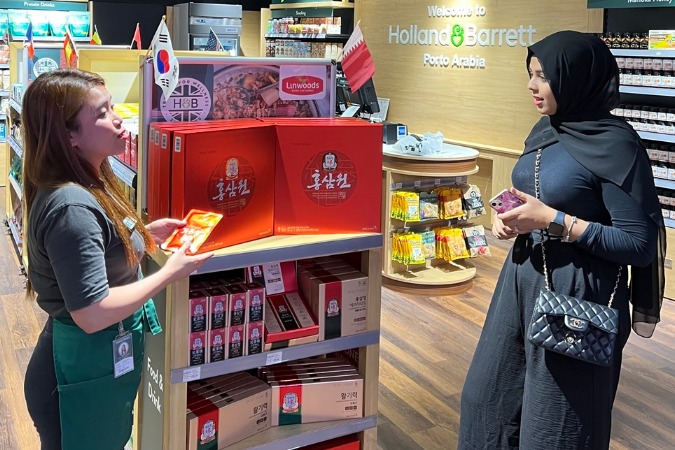
South Korea’s health supplement exports have experienced a remarkable surge, largely propelled by the growing interest among Chinese millennials and Generation Z. In the first 20 days of September 2024, exports of health functional foods, including popular items like red ginseng tonics and vitamins, rose to $43.9 million, marking a significant 40.2% increase compared to the same period last year. This acceleration follows a more modest rise of 1.6% in May and 26.5% in August.
This boom is particularly evident in the trade with China, which accounted for $57.1 million of South Korea’s health supplement exports in the third quarter of 2024, a staggering 65% increase from the previous year. Overall, South Korea’s health supplement exports totalled $176.3 million during the same timeframe. The upward trend reflects a broader expansion in the sector; health supplement exports have nearly doubled over the past five years, soaring from $345 million in 2019 to $683 million in 2023.
Korean brands are reaping the benefits of this burgeoning market. Notably, KT&G Corp.’s health food subsidiary, Korea Ginseng Corp. (KGC), has seen substantial gains, with exports of its flagship product, the Hong Sam Won red ginseng drink, increasing by 158% in 2024 compared to the previous year. Other original design manufacturers (ODMs) such as Novarex Co. and Kolmar BNH Co. have also reported impressive international sales, often bolstered by collaborations with global brands. For instance, Novarex, which partners with the US group GNC, recorded an 81% year-on-year increase in second-quarter exports, reaching 46 billion won (approximately $34 million).
The surge in demand from younger Chinese consumers is largely attributed to their shopping habits on e-commerce platforms like Alibaba’s Taobao and Tmall. In 2023, beauty-related nutritional supplements sold through these platforms reached 13.1 billion yuan (around $2.6 billion), which represents a 22% increase from the previous year. China’s overall health supplement market was valued at 347.5 billion yuan in 2023, according to local research institutes, with global research firm MarketsandMarkets projecting an annual growth rate of 8.3% through 2028.
The appeal of Korean health foods is reinforced by perceptions of safety and quality, particularly among the younger demographic in China. A survey conducted by KOTRA, the Korea Trade-Investment Promotion Agency, found that 83% of respondents in their 20s viewed Korean supplements as “highly safe,” compared to 67% among those in their 30s. Additionally, one in five respondents cited Korean popular culture as a motivating factor for their purchases.
In 2024, Korea ranked fourth among China’s health supplement import sources, with shipments valued at $267 million, a 19% increase from 2023, surpassing New Zealand and the Netherlands. Overall, China imported $61 billion worth of health functional foods in 2024, reflecting a 15.8% growth compared to the previous year.
As the health supplement market in China evolves, analysts emphasize the importance of adaptability for Korean firms. “Generational change and the shift to e-commerce are reshaping China’s health supplement market,” stated Park Sun-young, a research fellow at the Korea Investor Relations Service. “For Korean companies, rapid adaptation in product development and marketing will be essential.”
This shift signals a promising future for South Korea’s health supplement industry, driven by the demands and preferences of a new generation of consumers eager to invest in their health and well-being.






